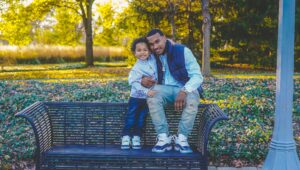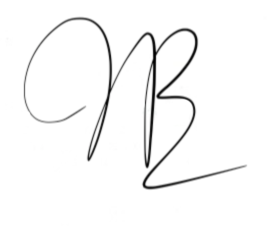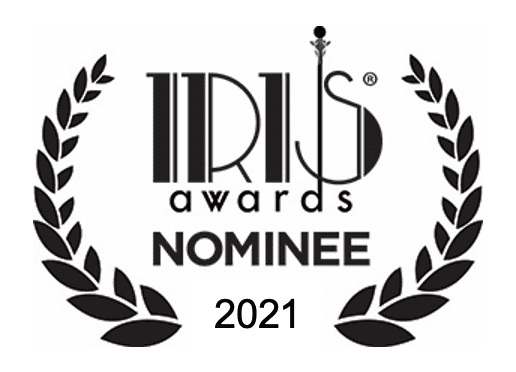Like most dads-to-be, Rob Palkovitz, then a graduate student, was a bit panicked when he learned that he and his wife, Judy, were expecting their first child.
“I felt like, ‘Oh my goodness. I’m supposed to be a child development expert, but I don’t know anything about fathering,’” recalled Palkovitz, a professor of human development and family sciences at the University of Delaware.
So, he combed research literature for insights into fatherhood and found some studies on the effects of fathering on children’s development but, in the late 1970s, there was little on the effect of fathering on men’s development.
Palkovitz’s desire to fill that gap led to a four-decade career as a fatherhood researcher who has studied intergenerational relationships, transitions within fathering, and the characteristics of resilient fathers in challenging circumstances.
A father of four, Palkovitz is probably best known for his unique research project in the 90s that explored how men are changed by parenthood. At the time, questions about how men incorporate fatherhood into their lives were not the subject of rigorous research.
That project eventually became a well-received book titled “Involved Fathering and Men’s Development: Provisional Balances” in which Palkovitz asserts:
“It is engagement in social fathering, involvement in relationships with children (whether or not you are the biological father), relating to them, taking responsibility for them, entering into their world, planning for their future, providing for them, protecting them, and wanting them to prosper in their own development that challenges adult males to grow into a new level of maturity…When a man commits his life to fathering, in many regards, the child becomes father to the man.”
He recently spoke with Fatherhood@Forty by phone to kick off our Person of Interest interview series and discuss how everyday dads can apply his research to their lives, especially in this age of COVID-19.
You’re most known for a fairly large research project which became [the Involved Fathering book.] How did you come to focus on asking men how fathering changed their lives?
Just from everyday life. I mean, there was so much literature about the effects of fathering on children’s development, and I didn’t see parallel literature on the effect of fathering on men’s development. Every dad that I would talk to would say, “Man, doesn’t parenting change everything?” So, as a developmentalist, I like to think about what permanently changes our development and what are simply changes.
I thought, “Well, look, this is exploratory research, so the way to get started is to just have conversations with some everyday dads.” So, I interviewed 40 men. It was a very diverse sample that I got, and I’m not just talking about race and ethnicity. Some men were stay-at-home dads, some men were residential dads, some men were divorced, some were never married, some had their first child quite young and some in their late forties. It was about an hour interview. I ended up with 1200 pages of transcript.
“Every dad I would talk to would say, ‘Man, doesn’t parenting change everything?’ So, as a developmentalist, I like to think about what permanently changes our development and what are simply changes.”
These were face-to-face interviews primarily in an office context. It was just the two of us, the dad and me. So, I said, “Well, look, some guys feel like they’re really different than they were before they had kids and other dads feel like there was virtually no big change in their life. Do you feel like you’re a different person than you were before you had a kid?” I was afraid that they would just say, “Yep,” or, “Nope,” and that would be it. But man, it got them started.
Once they said, “Yeah, I’m really different,” I would say, “Well, how do you sense that? How do you articulate that?” And they would tell me, “I’m a lot more responsible,” or “I’ve had to learn to control my anger.” Then I would systematically ask about different domains of life, basically. “How has it changed your marriage? How has it changed work? How has it changed health? How has it changed nutrition? How has it changed faith, morals, and values? How has it changed social relationships?”

I even asked about cars because I had a 1969 Mustang convertible since the early seventies, and it was when we had our fourth child that I sold it because we couldn’t all fit in it. I had separate domains, but what I saw was that they all fit together and that one thing affects another. So, it was a systems approach to development.
Anyhow, at the end of the interview, I would come back and say, “You told me you really changed in the area of marriage. Not so much in faith or a lot in…whatever.” I summarized what they told me about their own lived experience and I said, “What owns a bigger chunk of you than fatherhood? What has changed you more?”
There were three people who told me that something else changed them more. Two said, “The military changed me more.” And I understand that. From how pervasive an effect that can have on a person’s life, life structure, discipline, career trajectory, all that stuff. The other man told me, “Alcohol changed me more.” Other than that, men felt like fatherhood changed them more than any other singular factor.
Now, the limitation on this is that to recruit the sample, I placed ads in a local newspaper in the metropolitan area of Wilmington, Delaware. I did get a good diversity of men as I said earlier, but I put the ad in the “help wanted” section, therefore I had more men who were unemployed. That would typically be the case, but that partly gave me time to interview them. But secondly, people who responded, all of them perceived themselves to be really involved fathers. So, I didn’t have any cut and run dads. What I can talk to you about from this study is how men who perceive themselves to be involved tell me how they’ve changed.
What did you learn about the effect of fathering on men’s adult development?
That first of all, men see it as highly consequential in terms of shaping who they are as a person. I asked them specifically, “Besides time and money, how has it changed you as a person?” They could all really articulate that. Of course, every man had their own flavor or version of that story. It was an intersection of their circumstances with their partners and in the context of work and what all was going on in life.
Fatherhood “is both universal and it’s highly individual. Because it’s a human relationship, there are some things that apply to all human relationships.”
I asked them about the costs and benefits of having kids, and they could all articulate the costs, “It costs you spontaneity, it costs you privacy, you realize that your decision has impacts on more than just you and your partner.” But every guy besides being able to articulate the costs, said, “You know what? The benefits outweigh the costs.”
And they told me about, having pride, having just love and fun with their kids, somebody who really, really, really, really cared about them. They had their own individualized but masculine ways to talk about father love.

Universally they said the benefits outweigh the costs, and every one of them said that they were a better person than they were before they became a father.
I heard stories I didn’t expect. Like one guy told me, just in terms of health, he said, “I used to smoke three packs of Camel unfiltered a day.” He said, “As soon as I found out my wife was pregnant, I quit cold turkey.” And I’m like, “Well, why did you do that?” He looked at me and with a straight face and said, “Secondhand smoke is bad for you.” Then I asked him, I said, “Had you smoked in the presence of your wife prior to this?” And he was like, “Oh yeah.”
Those were a couple of the more dramatic stories out of the 40, but almost to a man they said, “There were things I had to deal with. I had to make some changes, and it’s not fair for my kid. So I want it to be a better person.”
Your first book got really great reviews. What were people saying about the book that let you know that you had captured something that was meaningful and significant in terms of human development?
The most significant review was from my parents. I dedicated the book to my dad. I gave my parents a copy, and my mom was still alive at that time, and they told me that they read it out loud to one another.
My mother always called me Robin, which is my legal name. She said, “Robin, we understood everything,” and I said, “Well, that’s great.” But they were surprised because they were not college-educated [and had expected the book to be difficult to understand.] She was a very candid person. You never had to guess what she was thinking. She said, “Well, I don’t want to sound disrespectful, but your father and I could have told you all these things.” And I said, “Well, then good, I’m onto something.”
That was the review that really meant a lot to me, that it was understandable and that it represented real-world experience.
What can today’s fathers learn from the “ABC of Fatherhood” model you recently described on the Child & Family Blog as Affective Climate (a sense of love and constant presence), Behavior (quality interactions), and Connection (being tuned in to others)? And does this model apply to unmarried parents and their children? I know sometimes they’re referred to as “fragile families.” I sometimes worry that some of the ideas about fatherhood and parenthood and family structure are from a very middle-class or privileged perspective.
This ABC model, honestly, it’s not about fathering. I mean, it’s about any relationship, isn’t it? It completely applies to mothering, right? But it also completely applies to, “How do you get along with your coworkers, your next-door neighbor?” And if you have an affective connection, you’re behaviorally engaged and your timing works okay, you’re going to have a better relationship than if you don’t, right? So, this is really about interpersonal relationships.

So, what I heard you say is the experience of fatherhood is universal. We may look at it through a lens of cultural diversity or socioeconomic diversity, but we’re talking about universal themes and ideas here that may take a shape in a cultural context.
It’s both universal and it’s highly individual, all right? Because it’s a human relationship, there are some things that apply to all human relationships. But fathering is somewhat different than mothering, and I still adhere that. I’m all for egalitarian marriages. I just fixed lunch and cleaned up the dishes, you can ask my wife about that. But men and women contribute different things to a relationship.
And I think that’s okay that they’re fundamentally different, but they complement each other in terms of the development of the child and the development of the person who’s parenting. My experience of fatherhood is not more than or equal to my wife’s role as a mother, it’s just different. And that’s okay that it’s different.
That’s the way parenting is. And as long as I can complement my wife, and we work together, and we both use our strengths, and we give each other room to explore our interests and to have fun with the fulfilling parts that we find fulfilling, then who cares if we’re the same or different?
“I said, ‘Sir, you have some things that are priceless. You give your daughter a sense of identity, you give your daughter a sense of connection, you give her a sense of her personal history…There’s so much you can do.'”
There’s been so much pop culture and policy attention on black fathers. It’s a mix of stereotypes and misinformation in terms of the absent black father, the dead beat dad, all of that. I think it was a 2013 CDC study that found that African American and Latino dads are more involved than their white counterparts. Do we play into stereotypes about fathers because of this racial lens that we have that prevents us from just seeing that dads are dads? Whether they are black dads, Latino dads, et cetera, they’re dads, they’re fathers. They might need different levels of support, but there are structural reasons why fathers may not be as present as they would like.
There’s a conception, especially among men, that, “If I’m not a provider, if I cannot economically provide for my child, I have no right to be engaged with them.” Sometimes it’s because they have a poor relationship with their child’s mother, sometimes it’s difficult co-parenting situations or divorce. Just share some of your insight on how to unpack some of this.
I love what you just said. I mean, that whole paragraph. We’re on the same page about so much of this. I have to tell you a story. I was doing some research with a really good friend and colleague of mine, Jay Fagan at Temple University. He and I co-publish a lot of stuff around fragile families, the big data sets. He’s the data genius, I’m more the theory and conceptualization guy in our partnered writing. Man, he’s a statistical wizard! But anyway, Jay and I were doing a focus group with some men who had just gotten out of prison and they were working to establish visitation or custody with their children. We had one guy who already had visitation rights in the group, just to be an encouragement to the men who were not as far along in the process. They were maybe four or five guys who were sort of just coming into the chute to start.

This one guy was a little further along in the process, and at one point he said something that made me ask him, “When’s the last time you saw your daughter?” And he told me it had been a while, several months, and I said, “But you worked so hard to get visitation, and so what’s up with that?” He looked at me and he said, “Man, every time I get together with her, she wants me to take her to the mall.” He said, “One, the mall is behind the limitation of my restraining order on how far I can go. He said, “Two, I can’t afford bus fare. Three, when we go…” look at this discrepancy, “I’m not allowed to and I can’t afford it, but when we go,” he says, “she wants me to buy her stuff.” And he said, “Man, I can’t even afford to buy her a bag of chips. Why do I want her to see that?” And it broke my heart.
In the context of a focus group, there was only so much I could say. But later I said to him, “Sir, you have some things that are priceless. You give your daughter a sense of identity, you give your daughter a sense of connection, you give her a sense of her personal history. You can connect her with friends in your neighborhood. There’s so much you can do. Yeah, I understand that you can’t give her everything you want to give her. Don’t underestimate what you can give her and what you do have, and how valuable that is.”
I know you’re a big promoter of encouraging everyday dads to apply insights from your research, and you’ve studied fathering and fatherhood for decades. What’s the best advice you would give to today’s fathers?
It’s going to sound really cliché, and it sounds too good to be true, and it’s, “Have fun.” If you have fun with your kids, you’ve got the A, the, B and the C going on, and it’s building a positive relationship. For years, I threatened to write a book called Stuff That Matters. If I was going to write Stuff That Matters, it’d be the ABCs.
Lastly, a question I got from a fellow blogger. “How do you model great fatherhood during a global quarantine?”
Well, I think it really comes down to the ABCs, but it’s how do we manifest those given the current scenario. Today, I was talking to my son in Uganda via video chat, and now I’ll be talking to my son in Vermont via phone as soon as we’re done here. It’s really staying in touch. It’s really just saying, “Hey, I’m here. How are you doing?” I think it also is up to dads to maybe model some confidence and some security around this. I mean, it comes down to, “Don’t let your hearts be troubled.” You have a choice, and so without stating it in that way to your children, just modeling and demonstrating that you’ve decided to, instead of focusing on the fear…let’s just talk about, “Well, what good has come out of this and how are you doing?”
— An edited transcript published April 30, 2020
— Featured image: Palkovitz and his first son (courtesy of Rob Palkovitz)
— Banner image (courtesy of City of Gold Coast on Unsplash)
Learn about Palkovitz’s involvement in the Global Fatherhood Charter, a research-based framework for parents, practitioners, and policymakers to support fatherhood in child development.
3011 words






by Michael Ferrari
This is an amazing story about an amazing man who has been a great blessing in my life for many years. Thanks for chronically a wonderful story of love and commitment by a loving a caring dad.
by Johnathon E. Briggs
Thanks, Michael. I enjoyed my conversation with Prof. Palkovitz and am glad his work and story continue to resonate.